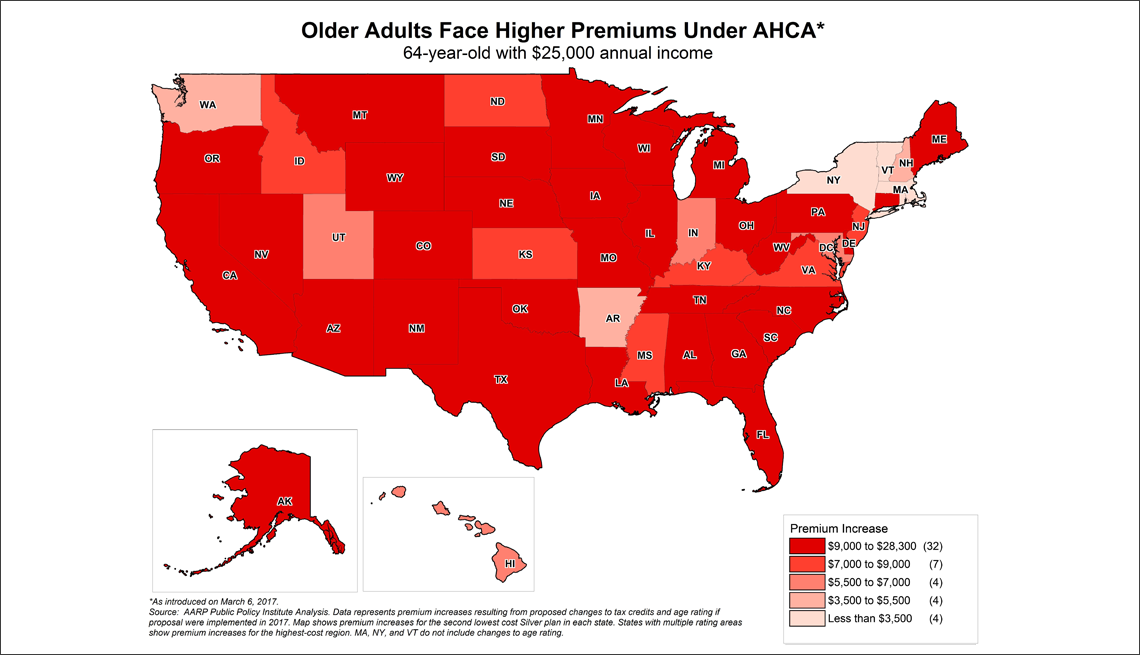
Adequate premium tax credits are vital to maintain access to affordabl..
- Select a language for the TTS:
- UK English Female
- UK English Male
- US English Female
- US English Male
- Australian Female
- Australian Male
- Language selected: (auto detect) - EN
Play all audios:

Over 3 million low- to moderate- income older adults ages 50–64 currently rely on tax credits under the Affordable Care Act (ACA) to purchase health insurance coverage. These tax credits
provide critical financial assistance for people who do not have access to affordable health insurance through an employer or a public program. Proposals to replace the ACA’s tax credits
with a new “flat” tax credit, even when adjusted by age, raise significant concerns for older adults. The tax credit proposal included in the American Health Care Act (AHCA) of 2017, as
introduced on March 6, would provide substantially less assistance for lower- and moderate-income older adults by as much as $5,900 for an individual. Older persons would face larger
reductions in tax credits than younger persons and, as proposed, the value of the proposed tax credits would erode over time. These changes would put health insurance coverage out of reach
for many older adults. STATE-LEVEL ANALYSIS State-by-State Impact of Tax Credit and Age Rating Changes Proposed by AHCA
